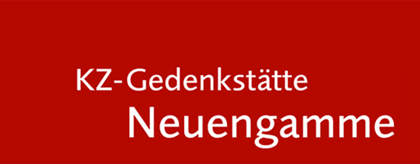11/10/2018 Time witness
In dialogue with Marianne Wilke
On Friday, November 9, 2018, Marianne Wilke visited the Neuengamme Concentration Camp Memorial to give a speech about her childhood under the oppression of the National Socialist Regime and the consequences on her life until today. She was the child of an “arian” mother and a Jewish father and was categorized “half Jewish” an suffered nearly the same consequences as Jews did. Her parents lived in what was called a “privileged marriage”. Her father was deported to Terezin in February 1945, he survived. Many members of his family did not share that luck though and were murdered e.g. in Riga and Minsk.
Marianne Wilke began by introducing herself and her husband who accompanied her. She told the audience that she was raised in a mostly non-politically and non-religious family. Her mother was a house wife, although she was a trained dressmaker while her father was working as a salesmen in a shipping company. Through anti-Semitic laws he lost his job before the war. The “Reichspogromnacht” on November, 9, 1938, marked a turning point in her family´s life. From that night on two questions were dominating her family´s thinking, because two of her uncles had been arrested and deported to the Sachsenhausen concentration camp. Those questions were: “Will it get worse?” and “Do we have to leave Germany?” As Marianne told us life indeed was getting worse.
In 1938 new laws were put into place so that Jewish people were not allowed to own a radio or any other kind of public broadcasting device anymore. Furthermore tenant protection for Jewish tenants got cancelled and a curfew was introduced so that they were not allowed to leave the house after 8 pm in winter and 9 pm in summer. Marianne remembered a story about her grandparents which was heartbreaking. Because of the cancellation of the tenant-protection they had to move from the flat they had lived in for the past 20 years in to a what was called “Jewish house”. They had to share their room with several different people and had to take the stairs although they were in their late 60s already. Following that circumstance Marianne had to go shopping for them more often than before. She told us that she did not like it, not because she was not willing to help, but because she had to go shopping with food ration cards which got a big J for Jew stamped over them. The big J was the reason many traders did not want to trade with her and one more time it became painfully clear for her that in the eyes of the general public she was somehow “different”.
Marianne invited the audience to take action against racism, xenophobia and prosecution and moved them to tears with her own story. She backed her call up with a quote of a German band called “Die Ärzte” which means as much as “It´s not your fault that the world is like it is, it will just be your fault if it stays like that”.
During her speech Marianne Wilke was able to show the audience the absurdity of the National Socialist system and gave a perfect example of how a single person can make a vast difference. Marianne herself is involved in the antifascist movement ever since the war ended and was given the Federal Cross of Merit for her dedication for minorities and people that were chased by the Nazis and her fight against oblivion. Above that she was given a “milestone” from the German Sinti and Roma union for her obligation to help them receive the status of a minority which opened the door for public support.
Marianne also seems to have moved the students in the audience. Throughout the whole speech everybody was listening carefully and nobody was talking aside. After she finished speaking, many of the pupils had one or more questions they wanted to ask her personally and they were carefully looking at her food ration card and her Jew-star. After many people already left the room about six students still stayed to have a little interview with her that she happily gave. After finishing the interview, taking the last pictures and answering the last questions she together with her husband joined the staff of the study center for lunch before they left.
A report by volunteer Dominik Heitmann

